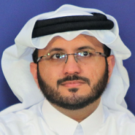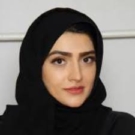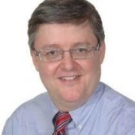Speakers

Majed Al-Ansari
Professor of Political Sociology
Qatar University

Reem Al Ansari
Professor of Law
Qatar University

William Lawrence
Professor of Political Science and International Affairs
George Washington University
Moderator
Event Summary
On February 1, 2018 Arab Center Washington DC hosted a panel discussion on US-Qatar relations in the wake of the strategic dialogue between the two nations on January 30, 2018. Following months of diplomatic and economic crises in the Gulf, with a Saudi-Emirati-led blockade on Qatar, the meeting was an indication of significant changes in the political landscape.
Panelists were Majed Al-Ansari, professor of political sociology and a researcher at Qatar University; Reem Al Ansari, associate dean of graduate studies and professor of law at Qatar University; and William Lawrence, professor of political science and international affairs at George Washington University. ACW executive director Khalil E. Jahshan moderated the event.
Professor Majed Al-Ansari emphasized that while Qatar and the United States may have experienced some tensions in the months since the blockade began, the bilateral relationship has a decades-long history. He said that intra-Gulf tension is not new, with many examples of Saudi Arabia asserting its influence in the region. First establishing a rapport during the Cold War, the United States and Qatar became closer after the first Gulf war, when US military presence was established in 1991 with the Al-Udeid Air Base. Al-Ansari explained that this ensured protection for Qatar in the event of a security risk from Iran or other states. The strength of Qatar’s energy sector and the influx of revenue meant that Washington could establish economic interests in the area that would advance its regional goals and projects. The reciprocal nature of this relationship is seen in the way Qatar and other Gulf countries have invested heavily in the United States. He said that politically and strategically, the catalyst for the United States in the region was the “strong presence” of the GCC, which was perceived historically by Washington as “an oasis of stability,” and this allowed US influence to spread to other countries in the region more easily.
Al-Ansari elaborated on the dynamics of intra-GCC relations, describing Saudi Arabia as “one big hegemon” that seeks dominance through annexing land or claiming political influence in one of the Gulf’s coastal states. Since the 1995 bloodless coup that saw Sheikh Hamad bin Khalifa Al Thani depose his father, Qatar has practiced independence in its foreign policy. He said that Qatar may not be a democracy, but it has pushed for democratic movements in the region, especially since the Arab uprisings of 2011. This policy, he noted, is in stark contrast with that of its more conservative neighbors. While Qatar may face belligerence from US allies Saudi Arabia and the United Arab Emirates, the strategic meetings in Washington were the continuation of a generally warm preexisting and growing relationship.
Professor Reem Al Ansari focused on the proliferation of Memorandums of Understanding (MOUs) between Qatar and the United States in such areas as education and military and security initiatives, and how these partnerships, which carry minimum legal obligations, have enabled alliances and strategic initiatives despite the differences between civil law and common law societies. She said that the “message is that Qatar has never wanted to be isolated.” Al Ansari spoke particularly about the legal requirements of the Anti-Money Laundering and Combating the Financing of Terrorism (AML/CTF) rules, and the 2017 MOU signed between Qatar and the United States to combat terrorism. This week, she noted, US Secretary of State Rex Tillerson assured the likelihood of the success of the US-Qatari relationship and called Qatar “a strong partner and a longtime friend.” She stressed that this relationship is facilitated by the legal agreements, and that Qatar has been clear and reasonable since the beginning of the crisis, trying to tackle problems with terrorism directly and effectively.
Professor William Lawrence observed that in some regards, the US-Qatari relationship has never been stronger. In recent months, Secretary Tillerson visited the Gulf country three times and Secretary of Defense James Mattis twice. There are many dimensions to the US-Qatari relationship, Lawrence remarked, from regional security, trade, and investment to aviation; but despite these close bonds, the GCC crisis was quite low on the Trump Administration’s priorities—below defeating ISIS, confronting Iran, dealing with the domestic crisis in Iran, and the humanitarian disasters in Yemen and Syria. Nevertheless, he said, the dysfunction in the GCC is not in the United States’ interest. The infrastructure of US military operations in Qatar is large and growing, and this would make it hard for the United States to disengage from Qatar. However, Washington has no appetite for any disengagement; quite the contrary, he said, it seems to desire further involvement.
Lawrence noted that while US rhetoric has been largely neutral, US actions have been friendly. Washington will continue to invest in Qatar’s energy sector and strengthen military relations, predicted Lawrence, and seek agreements in keeping with the transactional nature of the Trump Administration’s foreign policy. This, in a way, is a significant victory for diplomacy. He said that Qatar’s relationship with Hamas or the Taliban actually has diplomatic appeal; other countries, including the United States, have benefited from these connections. Overall, he said, “I think the Qataris have waged very skilled diplomacy” during the Gulf crisis.
Event Highlights
Event Photos

